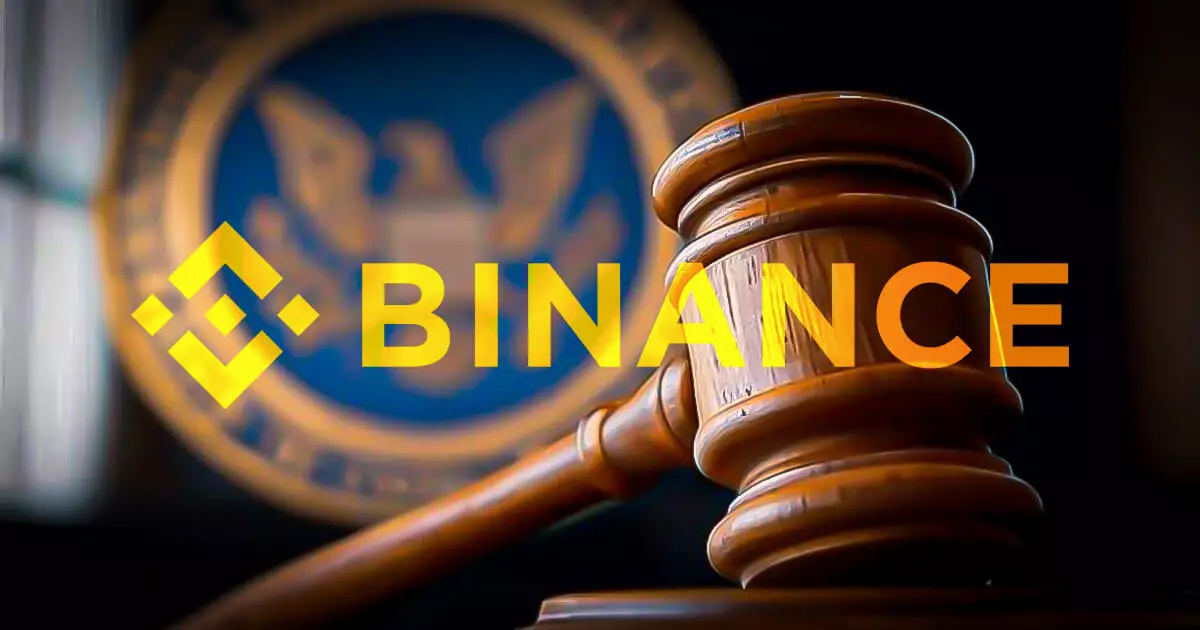In a notable turn of events, the U.S. Securities and Exchange Commission (SEC) and Binance have entered a joint plea to suspend their ongoing litigation for a period of 60 days. Filed on February 10, this request stems from the SEC’s establishment of a dedicated cryptocurrency task force under the direction of Acting Chair Mark Uyeda. The filing elucidates that this task force may significantly impact the case’s resolution, prompting both parties to agree on a temporary cessation of proceedings aimed at improving judicial efficiency.
This amicable pause serves not just administrative purposes but reflects a broader strategic recalibration on both sides. With the understanding that any early resolution could potentially eliminate the necessity for prolonged litigation and discovery, both the SEC and Binance deem this approach beneficial. They are aware that minimizing disputes and facilitating negotiations could ultimately save costs and resources, a factor that often weighs heavily in legal considerations.
Background of the Case
The lawsuit began in 2023 when the SEC accused Binance of breaching U.S. securities laws by offering various tokens—including notable ones such as Solana and Cardano—that the agency classified as securities under the Howey Test. This legal framework remains critical in distinguishing between securities and other asset types. The SEC’s stance has historically been contentious, yet it illustrates a pivotal moment not only for Binance but for the cryptocurrency sector at large.
In July 2024, complicating matters further, the SEC attempted to modify its complaint. Binance responded vehemently by filing a motion to dismiss both the amendment and the case itself. This exchange is emblematic of the ongoing tensions between regulatory bodies and cryptocurrency firms, raising larger questions about governance and compliance within the rapidly evolving digital marketplace.
The movement toward creating a specialized crypto task force represents a significant shift in the SEC’s regulatory posture under Uyeda’s leadership. Historically, the commission has faced criticism for its opaque guidelines and aggressive enforcement methods. Advocates for clearer regulations, including Commissioner Hester Peirce, have emphasized the need for a more transparent framework that fosters innovation rather than stifles it through vague legal interpretations.
As part of redefining its approach, the SEC is also reportedly downsizing its dedicated unit focused on crypto enforcement, a development that signals a reevaluation of its tactics. This change is fascinating in the context of the current litigation, as it suggests a newfound openness to negotiate and consider the dynamic factors involved in cryptocurrencies, rather than merely pursuing punitive measures.
As the suspension unfolds, both parties will report back to the court to assess whether additional extensions are warranted. The implications of this temporary pause extend well beyond the confines of this specific lawsuit, potentially influencing future approaches to crypto regulation. The involvement of a task force and new leadership signals that the SEC may be navigating a path that values collaboration over confrontation.
The SEC and Binance’s decision to seek a 60-day timeout in their legal battle exemplifies a pivotal moment in the regulatory landscape of cryptocurrencies. As both parties await further developments, the outcomes of this case may well set important precedents for the future of crypto legislation in the United States.


Leave a Reply